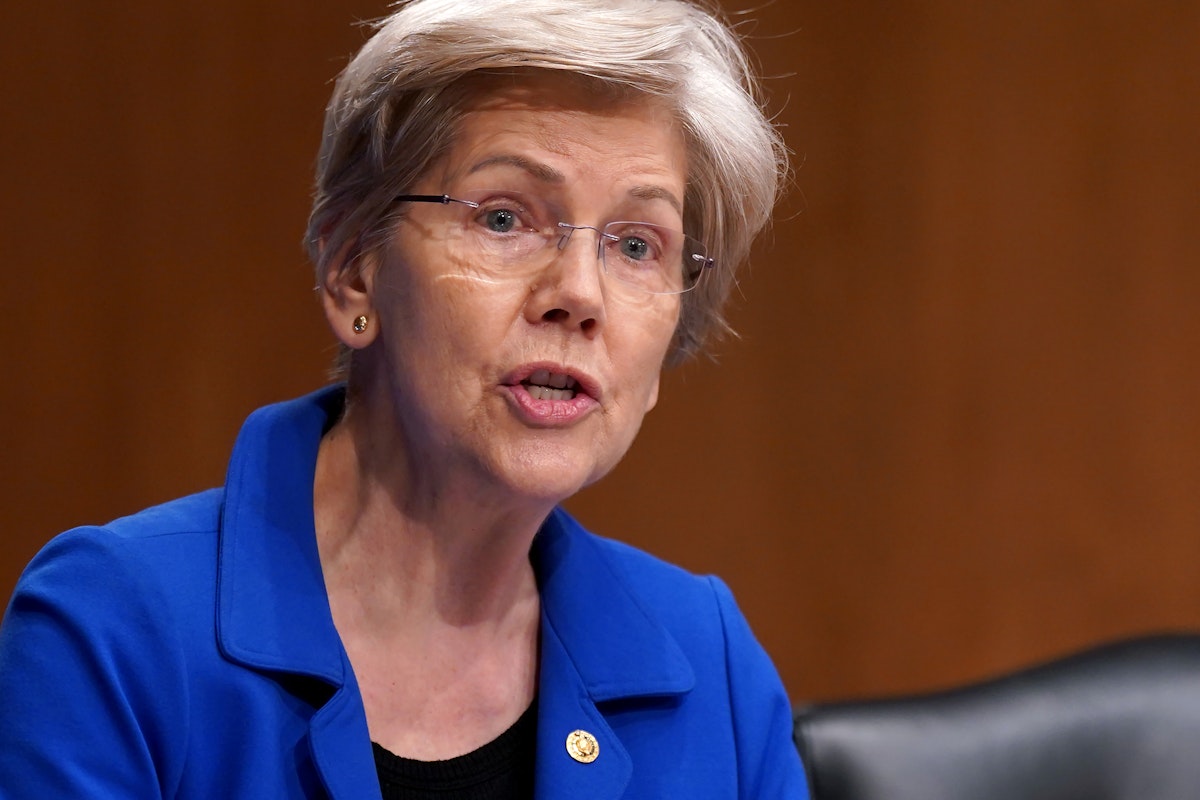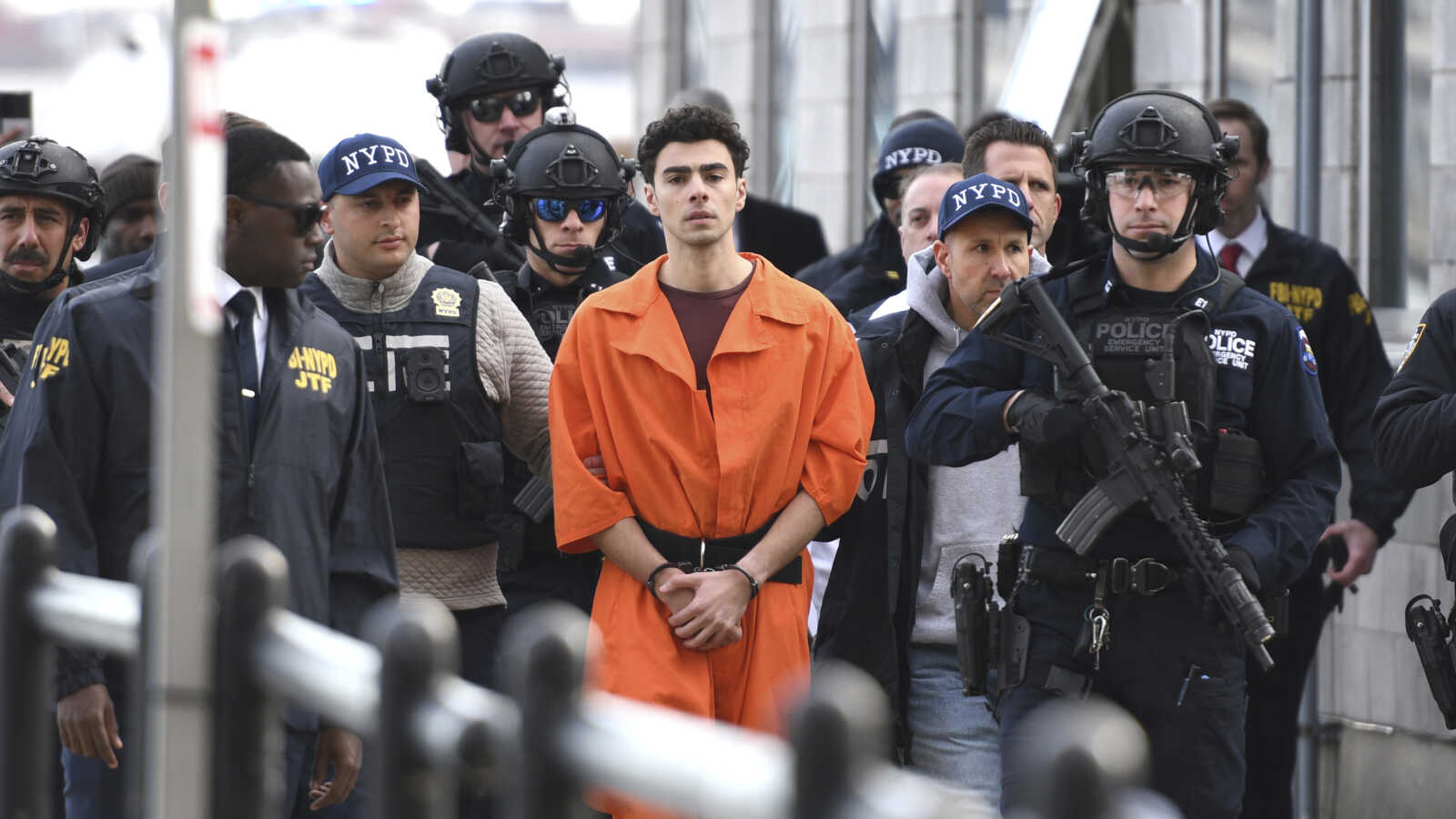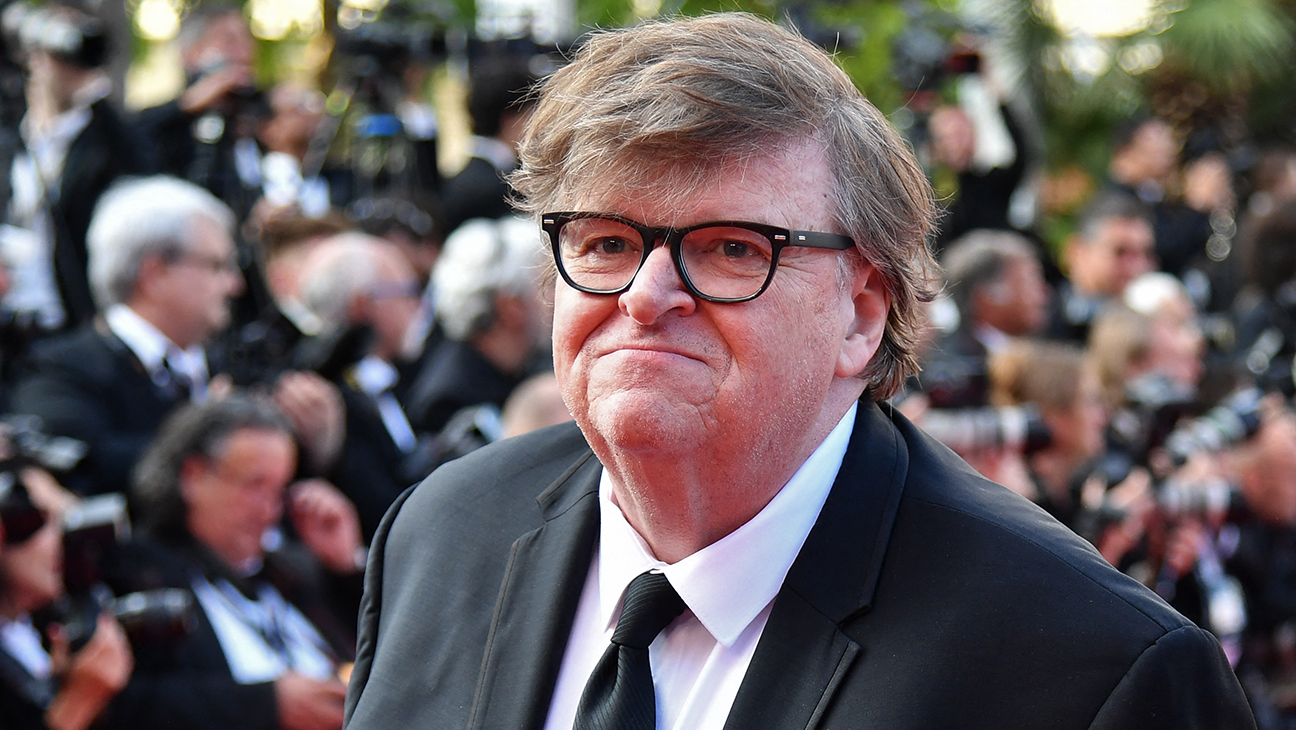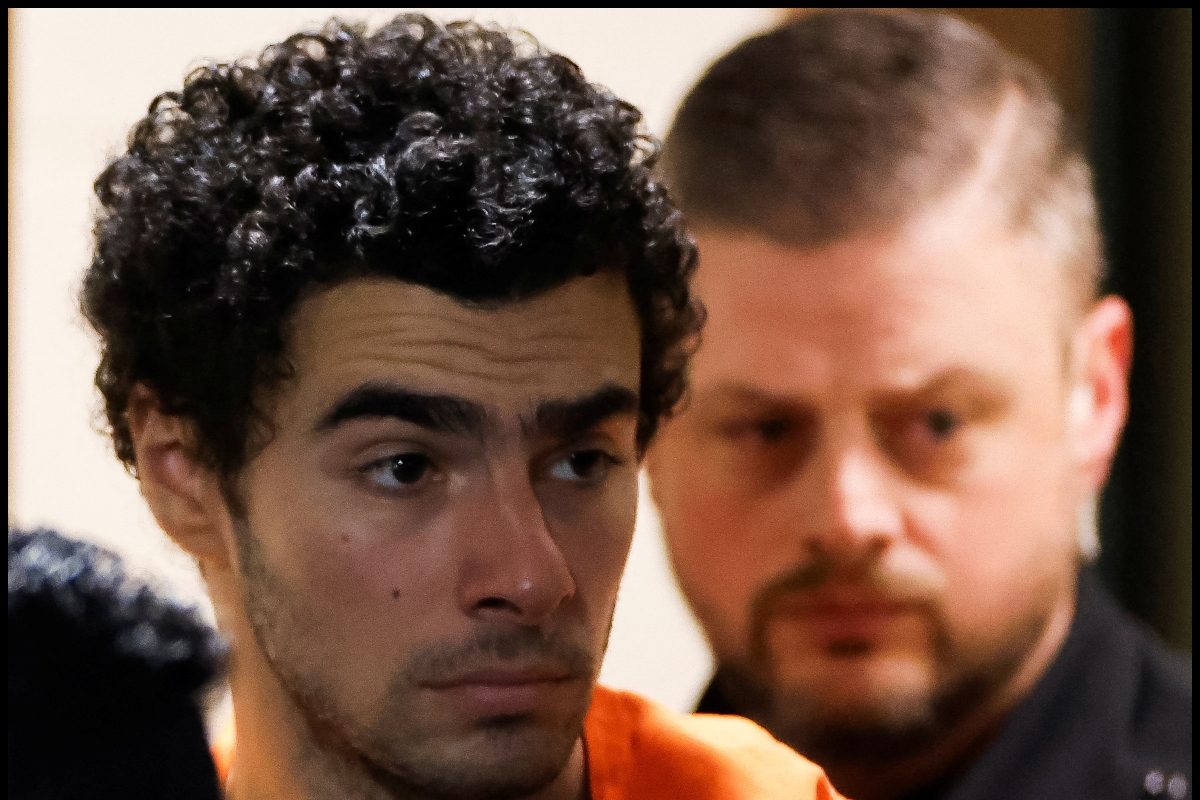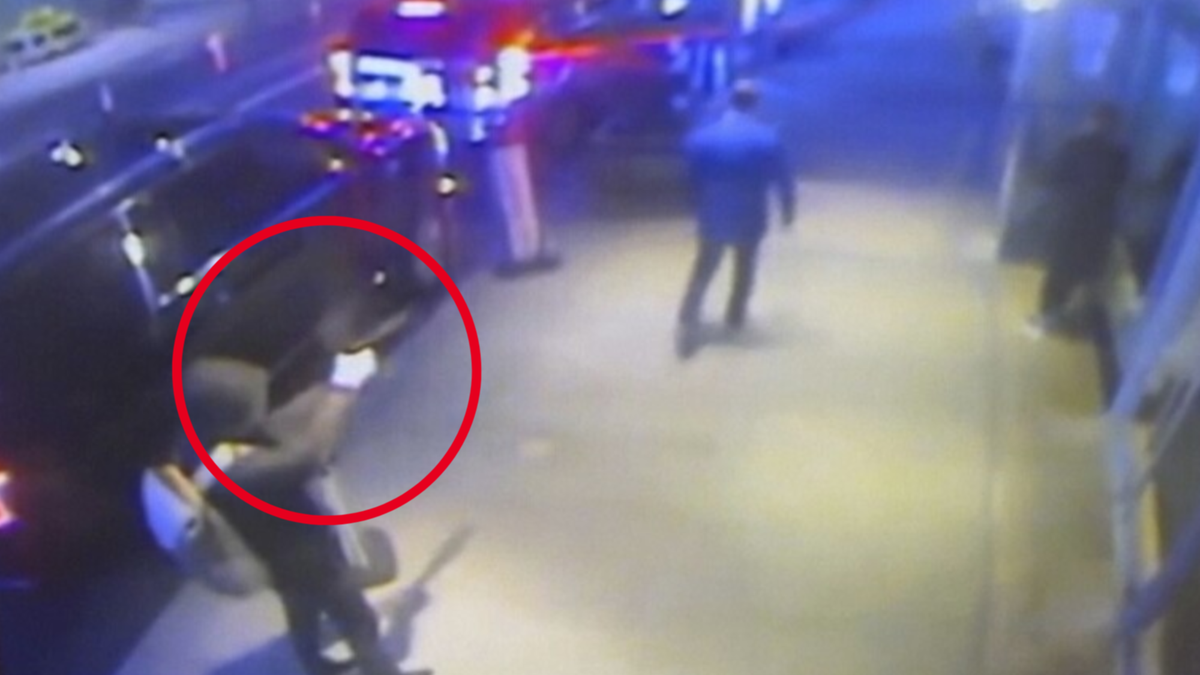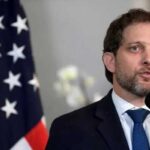Senator Warren Responds to Reaction Following CEO’s Assassination
Senator Elizabeth Warren, a staunch critic of the U.S. health care system, offered a blunt assessment of UnitedHealthcare CEO Brian Thompson’s assassination and the discourse that followed.
“The visceral response from people across this country who feel cheated, ripped off, and threatened by the vile practices of their insurance companies should be a warning to everyone in the health care system,” Senator Warren said in an interview with HuffPost Tuesday. “Violence is never the answer, but people can be pushed only so far.
Warren Warns of Consequences from Eroding Public Trust in Health Care
“This is a warning that if you push people hard enough, they lose faith in the ability of their government to make change,” Warren continued. “[They] lose faith in the ability of the people who are providing the health care to make change, and start to take matters into their own hands in ways that will ultimately be a threat to everyone.”
You may be interested
Luigi Mangione, 26, from Baltimore County, Maryland, was apprehended at a Pennsylvania McDonald’s on Monday for Thompson’s murder. Mangione’s motives seem motivated by personal trauma, as he suffered a significant back injury that he sought serious relief for. After his arrest, police reportedly found a notebook explaining Mangione’s rationale for the shooting, including a manifesto citing the exorbitant costs of health care in the United States.
Warren Clarifies Comments on Violence Following CEO’s Death
Warren’s comments immediately drew criticism from some Democrats and Republicans, forcing her to clarify.
“Violence is never the answer. Period,” Warren told HuffPost. “I should have been much clearer that there is never a justification for murder.”
Senator Bernie Sanders, who also initially spoke with the publication, echoed Warren.
“I think what the outpouring of anger at the health care industry tells us is that millions of people understand that health care is a human right and that you cannot have people in the insurance industry rejecting needed health care for people while they make billions of dollars in profit,” he said.
Congress members might soon come face-to-face with one of their attackers.
Republican members of Congress have invited Russell Taylor, a January 6 protester who stormed the Capitol with a tactical vest and a knife strapped to his chest, to attend Trump’s second inauguration, Politico reported Wednesday.
Taylor pleaded guilty and was sentenced to six months’ home detention and three years’ probation in May for his role in ransacking the building. Ahead of the riot, Taylor organized a group of “fighters” to attend pro-Trump events, planning for chaos. Some of Taylor’s “fighters” included individuals who identified as Three Percenters, or people who subscribe to the Three Percent ideology, which the Southern Poverty Law Center identifies as an “antigovernment militia movement.”
At the time of Taylor’s sentencing, U.S. District Judge Royce Lamberth said that he believed Taylor had testified truthfully and expressed sincere remorse, noting that the Californian could become a “poster child” for how January 6 cases “should be done.”
Chris Stewart, a former Republican representative from Utah, also asked that Taylor be allowed to attend the ceremony. “He is [a] caring father and reveres his family, his faith, and his love of our Country as his highest priority in life,” Stewart wrote in a letter to Lamberth. “I am honored to extend this invitation for him to attend the Inauguration as my guest.”
Stewart’s letter did not refer to Taylor’s actions on January 6 or their effect in delaying the certification of the 2020 presidential election results. It did, however, make mention of three other Utah lawmakers who are requesting Taylor’s presence at Trump’s inauguration, but did not specify which ones.
Read more about Trump’s upcoming presidency:
Donald Trump went on a wild social media tirade Wednesday after FBI Director Christopher Wray resigned from his position.
“The resignation of Christopher Wray is a great day for America as it will end the Weaponization of what has become known as the United States Department of Injustice,” Trump wrote on Truth Social. “I just don’t know what happened to him.”
What happened to Wray was actually really simple. Last week, Trump nominated Kash Patel, a sycophantic fascist eager to go after a list of the president-elect’s “deep state” enemies, to lead the FBI. Rather than be formally dismissed or chased out by the president-elect after he was sworn in, Wray—a Trump appointee who was slated to hold the position for three more years—resigned Wednesday.
“We will now restore the Rule of Law for all Americans. Under the leadership of Christopher Wray, the FBI illegally raided my home, without cause, worked diligently on illegally impeaching and indicting me, and has done everything else to interfere with the success and future of America.” Trump wrote. “They have used their vast powers to threaten and destroy many innocent Americans, some of which will never be able to recover from what has been done to them.”
Trump was referring to the 2022 FBI raid of his residence at Mar-a-Lago, which was part of the investigation and eventual indictment into his alleged mishandling of classified documents. Judge Aileen Cannon tossed out the 42 felony charges against the president-elect in July, ruling that special counsel Jack Smith’s appointment to the case was unconstitutional, a decision criticized by legal scholars as unprecedented.
Trump continued, “Kash Patel is the most qualified Nominee to lead the FBI in the Agency’s History, and is committed to helping ensure that Law, Order, and Justice will be brought back to our Country again, and soon. As everyone knows, I have great respect for the rank-and-file of the FBI, and they have great respect for me. They want to see these changes every bit as much as I do but, more importantly, the American People are demanding a strong, but fair, System of Justice. We want our FBI back, and that will now happen. I look forward to Kash Patel’s confirmation, so that the process of Making the FBI Great Again can begin. Thank you!”
Wray announced his decision to step down Wednesday, telling his FBI employees that resigning was “the best way to avoid dragging the bureau deeper into the fray, while reinforcing the values and principles that are so important to how we do our work.” He will leave his position once Trump takes office in January.
Senator Kyrsten Sinema briefly showed up for work Wednesday to tank a Democratic nominee to the National Labor Relations Board, using her last days in office to hurt workers’ rights before Donald Trump is sworn in as president.
Sinema was joined by fellow departing Democrat turned independent Senator Joe Manchin in voting against Democrat Lauren McFerran’s appointment to a third term as chair of the board, resulting in a 49–50 vote. Two of the NLRB’s five members are Republicans, and two are Democrats, and its chairperson is chosen by the sitting president and breaks partisan ties.
If McFerran was confirmed, a Democratic board would have been in place until late 2026, able to uphold the NLRB’s mission of protecting the right to form a union and enforcing labor law. The appointment would have also allowed for more pro-worker decisions and policies, and protected against right-wing attacks on unions and labor rights.
Sinema’s vote came out of nowhere, as she had missed every single Senate vote in the past week through Tuesday, suggesting she had specific ideas about this appointment. Manchin told reporters after the vote that he opposed McFerran’s nomination because she supports the “joint-employer rule,” which states that an entity can be considered a “joint-employer” of another company’s employees if it has or influences control over the employees’ wages, hours, and working conditions, even if it is not the main employer.
“This is not a surprise to anyone,” Manchin said. Both Manchin and Sinema have a history of opposing pro-labor and pro-worker bills, from the Build Back Better Act to raising the minimum wage. Now, in their last month in office, they’ve paved the way for the right wing under Trump to gut labor protections with a compliant NLRB.
“It is deeply disappointing, a direct attack on working people, and incredibly troubling that this highly qualified nominee—with a proven track record of protecting worker rights—did not have the votes,” said Senate Majority Leader Chuck Schumer.
More on the Trump transition:
Donald Trump is slated to be named Time magazine’s 2024 “Person of the Year,” according to Politico.
The magazine expects to make the official announcement on Thursday morning, and the president-elect intends to ring in the New York Stock Exchange to celebrate. Trump was named “Person of the Year” after his victory in 2016 as well. This year’s runner-ups included Vice President Kamala Harris, Kate Middleton, Elon Musk, and Benjamin Netanyahu.
Trump keeps a close watch on the naming each year. In 2013, when it was Pope Francis, he commented, “A joke and stunt of a magazine that will, like Newsweek, soon be dead. Bad list!”
He changed his tune in 2016 when he was “Person of the Year.” “It means a lot, especially me growing up reading Time magazine. And, you know, it’s a very important magazine,” he said.
Unfortunately More on Trump:
The director of the Federal Bureau of Investigations, Christopher Wray, resigned from his post on Wednesday.
It’s been less than two weeks since Donald Trump announced his intention to replace Wray with Republican operative Kash Patel in a statement that failed to acknowledge the incumbent director’s requisite exit. Trump appointed Wray to the position seven years ago after ousting James Comey amid an investigation into whether the forty-fifth president’s advisers colluded with the Russian government during his 2016 presidential campaign. Wray’s term wasn’t slated to end until 2027.
“This is the best way to avoid dragging the bureau deeper into the fray, while reinforcing the values and principles that are so important to how we do our work,” Wray told FBI employees.
Wray said he will serve until the end of the current administration and then leave once Trump takes office in January.
“The resignation of Christopher Wray is a great day for America as it will end the Weaponization of what has become known as the United States Department of Injustice,” Trump wrote on Truth Social following Wray’s announcement. “I just don’t know what happened to him. We will now restore the Rule of Law for all Americans.”
The 10-year term minimum for FBI directors is designed to insulate the position from the sway of political influence—but Wray will mark Trump’s second firing of the bureau’s top official during his time in power.
Speaking with NBC News’s Meet the Press, Trump said he wasn’t “thrilled” with Wray’s job at the country’s top law enforcement agency, suggesting that the FBI’s role in repossessing sensitive and classified documents from Trump’s Florida estate had marred his opinion of his appointee.
“He invaded my home,” Trump said on Sunday. “I’m suing the country over it. He invaded Mar-a-Lago. I’m very unhappy with the things he’s done, and crime is at an all-time high. Migrants are pouring into the country that are from prisons and from mental institutions, as we’ve discussed. I can’t say I’m thrilled.”
Of course, the FBI did not “invade” Mar-a-Lago—rather, the agency executed a court-approved search warrant to reclaim documents that Trump had taken from the White House after the end of his last presidency.
Patel, a Trump loyalist, hasn’t yet dished details on how he intends to change the FBI, though he has promised that sweeping reforms are on the way. Former intelligence officials have warned that Patel’s appointment could strip the FBI of its independence and that his leadership could oversee an era in which the agency is tasked with politically motivated investigations from the Trump administration.
“Kash Patel is the most qualified Nominee to lead the FBI in the Agency’s History, and is committed to helping ensure that Law, Order, and Justice will be brought back to our Country again, and soon,” Trump wrote on Truth Social Wednesday. “We want our FBI back, and that will now happen. I look forward to Kash Patel’s confirmation, so that the process of Making the FBI Great Again can begin.”
Patel himself has demonstrated a propensity for politically charged witch hunts. The nominee has promised to go after 60 people named on a so-called “enemies list” who he believes are members of the executive branch “deep state.” They include President Joe Biden, Vice President Kamala Harris, Defense Secretary Lloyd Austin, Comey, Hillary Clinton, and Obama-era FBI Director Eric Holder.
This story has been updated.
Read more about Wray’s potential replacement:
Senator John Thune, the chamber’s incoming majority leader, is reportedly working behind the scenes on a plan to block some of Donald Trump’s controversial Cabinet nominees.
During an appearance on MSNBC’s Morning Joe Wednesday, MSNBC contributor Katty Kay said that after attending an event where she spoke to a swath of Republican senators, her understanding was that Thune intends to “protect” some of his fellow Republicans while still opposing Trump’s more preposterous picks, such as Fox & Friends host Pete Hegseth and former Democratic representative turned MAGA acolyte Tulsi Gabbard.
“He can’t have all the same senators go out and say ‘no’ against all of the picks. And so he’s coming up with some kind of rotation scheme,” Kay explained. “Maybe it’s Thom Tillis votes against one of them, maybe if Joni Ernst votes against one of them—maybe somebody else votes against one of them, the thinking is that they could probably get rid of four, and that includes Matt Gaetz.”
For his part, Thune seems to have avoided ever becoming a full Trump sycophant. When the Access Hollywood tape came out in 2016, Thune called on Trump to withdraw his candidacy in favor of Mike Pence. Thune wasn’t the majority leader Trump wanted, but he was the one he got. Now, he may prevent Trump from getting his way, again.
However, MAGA activists have been quick to execute online pressure campaigns against any Republican senators who don’t comply with Trump’s demands for swift confirmations—recently targeting Iowa Senator Joni Ernst after she seemed reluctant to support Hegseth.
Read about Trump’s other nominations:
President Joe Biden has spent the majority of his White House tenure practically ignoring pardon requests—but now he’s working to pardon certain individuals before they’ve even been charged with wrongdoing.
In the last four years, Biden’s office has received 10,500 pardon requests, but out of those, he has issued just 25, according to Axios. Then, on December 1, the 82-year-old pardoned his son Hunter Biden, sparking immense backlash from members on the left and the right for going back on his promise to obey the jury’s decision in his son’s case.
The Biden administration is working around the clock to finalize more pardons before he exits the Oval Office on January 20, but some of the names in discussion don’t actually warrant a pardon—yet.
Biden is reportedly considering issuing preemptive pardons for Democratic Representative Bennie Thompson and former Republican Representative Liz Cheney, after Donald Trump told MSNBC’s Meet the Press that the pair should be “jailed,” reported TheGrio Wednesday.
“We are not done yet,” one high-ranking Justice Department official (who did not want to be identified due to the sensitivity of the pardons) told the publication.
But Biden’s plan to save his allies will only add fuel to the fire of his critics, who believe that he is advancing a devastating legacy that involves backtracking on his campaign promises and undermining the rule of law. The move could potentially give more fodder to Trump supporters who falsely believe people such as Cheney or Anthony Fauci, Trump’s chief medical adviser during the Covid-19 pandemic, have committed crimes.
The preemptive pardons would also set an egregiously dangerous precedent for future administrations, creating an executive privilege that could very easily be exploited by a Trump administration already surrounded by criminally charged allies.
In the week and a half since Biden saved his son from an imminent criminal sentence, interest groups have vied to focus the president’s attention on their own wannabe pardon recipients. Progressives are fighting to pardon “those that are elderly, those that are ill, those that are non-violent offenders, those who have been incarcerated because of cannabis convictions,” Massachusetts Representative Ayanna Pressley told Axios. Republicans and libertarians, meanwhile, have pushed Biden to pardon government whistleblowers, including Julian Assange and Edward Snowden.
Read more about Biden’s pardons:
Donald Trump may be off the hook for his criminal trials, but that doesn’t mean his associates are getting equal treatment.
Dozens of the president-elect’s aides and allies are still facing the music in five states—Arizona, Georgia, Wisconsin, Nevada, and Michigan—for their involvement in Trump’s 2020 election conspiracy.
“Our job is justice and that job does not change depending upon who wins the presidential election,” Nevada Attorney General Aaron Ford told Politico. “The rule of law does not cease to exist because [Trump] has won the presidency.”
Eighteen of Trump’s associates are on the hook in Arizona, where they’re accused of orchestrating a scheme to use fake electors to flip Arizona’s 2020 election results over to Trump. They include Rudy Giuliani, Trump White House chief of staff Mark Meadows, and attorneys John Eastman and Christina Bobb. Two of the charged individuals have already pleaded guilty, including former Trump attorney Jenna Ellis, who arranged a plea deal with state prosecutors in exchange for dismissed charges.
The rest of the lot are slated to start trial in January 2026. All of the indicted individuals in Arizona face the same slew of charges, which include counts for conspiracy, forgery, fraudulent schemes and practices, and fraudulent schemes and artifices—the last of which holds a potential sentence of up to five years in prison.
“I have no intention of breaking that case up. I have no intention of dropping that case,” Arizona Attorney General Kris Mayes told MSNBC last month. “A grand jury in the state of Arizona decided that these individuals who engaged in an attempt to overthrow our democracy in 2020 should be held accountable, so we won’t be cowed, we won’t be intimidated.”
Eighteen people close to Trump are charged in Georgia for their participation in the fake elector conspiracy, including some who overlap with the Arizona case, such as Giuliani and Meadows. Four individuals have already pleaded guilty, including the architect of the scheme Kenneth Chesebro, though he has since attempted to withdraw his plea.
In Wisconsin, Chesebro, Trump campaign operative Michael Roman, and veteran Wisconsin lawyer James Troupis have been charged with forgery in the alleged fraud. In Nevada, 21 GOP activists still face prosecution for their role in the scheme. And in Michigan, 16 GOP electors have been charged with felonies, though one has since been let off the hook through a plea deal.
But Trump’s return to the White House and his ability to suddenly walk free will put jurors and prosecutors deliberating the case in a strange position: identifying guilt in Trump’s allies as they dance around the soon-to-be president’s role at the epicenter of the vast conspiracy.
The criminal cases against Trump died overnight after the MAGA leader won the presidential election, effectively allowing him to skirt all responsibility by resuming an office that cannot be criminally prosecuted. Trump faced 91 criminal charges across four cases that prosecutors waited years to take to court. Separately, he was convicted on 34 criminal counts relating to covert hush-money payments made to porn actress Stormy Daniels ahead of the 2016 election—but that sentencing dissolved just days after Trump won the election.
However, he’s still on the hook for eight civil cases relating to his involvement in the January 6 attack. The cases, which come from congress members and injured police officers, could be the last bastion in holding Trump to account for failing to intervene as his supporters ransacked the U.S. Capitol.
Read more about Trump allies’s legal woes:
Robert F. Kennedy Jr. thinks that the CIA was behind his uncle’s assassination in 1963—and he wants Donald Trump to appoint his daughter-in-law, Amaryllis Fox Kennedy, to be deputy CIA director so she can deep dive into the agency’s history.
Axios has reported that RFK Jr. specifically wants to use his daughter-in-law to look to prove the CIA was behind the assassination of his uncle, President John F. Kennedy.
The popular conspiracy theory, one of many that has sprouted, holds that the CIA was angered by Kennedy for a multitude of reasons, including his firing of then–CIA Deputy Director Allan Dulles, his reduced air support during the Bay of Pigs, his planned cuts to the CIA budget, or for simply not hating communism enough. RFK Jr. has stated his support for this theory multiple times.
“There is overwhelming evidence that the CIA was involved in his murder,” Kennedy said on New York City radio in May. “I think it’s beyond a reasonable doubt at this point.” He also thinks the agency was involved in his father Robert Kennedy’s assassination too, stating that the evidence is “very convincing, but is circumstantial.”
Fox Kennedy as deputy CIA director has divided the Trump transition team, as there are some grumblings that her politics are not sufficiently Trumpy. Fox Kennedy was an undercover CIA agent for more than a decade, and served as RFK Jr.’s most recent campaign manager.
But regardless of who takes the top CIA spot, the JFK assassination investigation will likely be a priority, given its focus in both Trump and RFK Jr.’s campaigns. Trump even vowed to release the very last of the JFK assassination files.
“I will establish a new independent presidential commission on assassination attempts, and they will be tasked with releasing all of the remaining documents pertaining to the assassination of President John F. Kennedy,” he said in August.
John F. Kennedy was assassinated by Lee Harvey Oswald in Dallas in 1963. In 1979, the House Select Committee on Assassinations, or HSCA, found that the CIA was not involved in the assassination.

